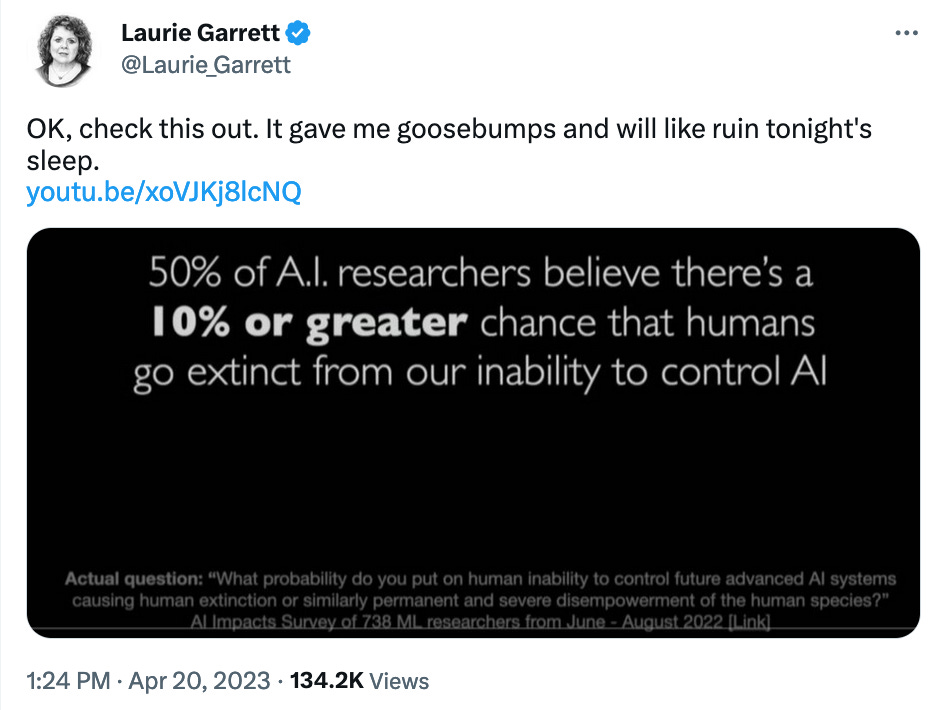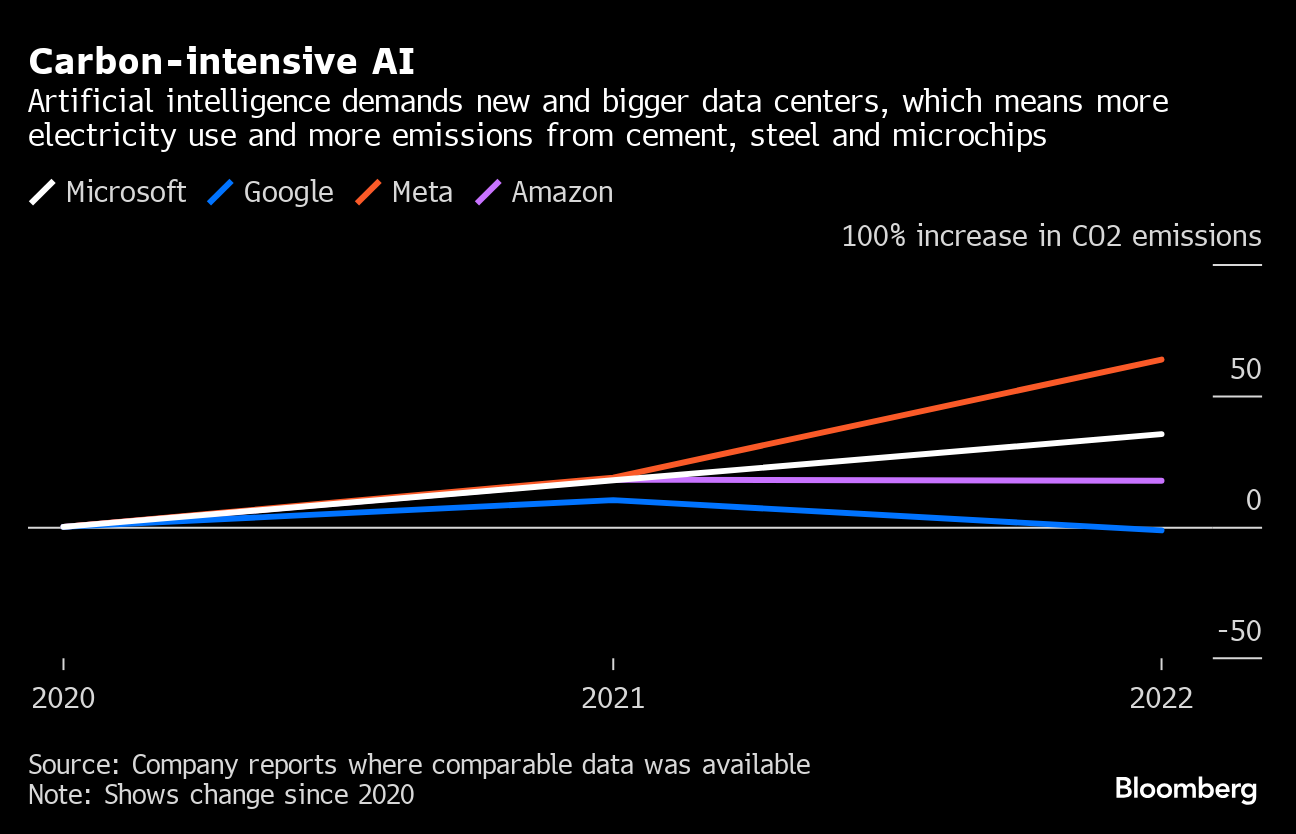In a recent survey conducted among 2,700 artificial intelligence (AI) researchers who have published work at six top AI conferences, it was revealed that almost 58% of respondents believe there is a 5% chance of AI causing human extinction or other catastrophic outcomes.
The survey also explored the timelines for AI technological milestones and their potential societal consequences. Despite the uncertainty and disagreement among researchers, these findings shed light on concerns within the AI community regarding the potential risks associated with superhuman AI development.
Researchers express caution about AI extinction risk
Katja Grace, an author of the survey and researcher at the Machine Intelligence Research Institute in California, emphasized the significance of the belief in a non-minuscule risk posed by advanced AI. Grace stated, “It’s an important signal that most AI researchers don’t find it strongly implausible that advanced AI destroys humanity.” However, there is no immediate cause for alarm, according to Émile Torres, a scholar at Case Western Reserve University in Ohio.
Torres cautioned against overreacting to expert surveys, noting that they do not have a strong track record in predicting AI developments accurately. A previous study in 2012 found that AI expert predictions were no more reliable than public opinion. The authors of the current survey also pointed out that AI researchers may not possess expertise in forecasting AI’s future trajectory.
Accelerated milestones and earlier predictions
Compared to a 2022 version of the same survey, many AI researchers in the latest survey anticipated that AI would reach certain milestones sooner than previously projected. These predictions coincided with the November 2022 launch of advanced AI chatbot services like ChatGPT and the rapid deployment of similar AI models in Silicon Valley.
Researchers foresaw a 50% or higher likelihood of AI systems successfully accomplishing various tasks within the next decade. These tasks included creating songs indistinguishable from those of popular artists like Taylor Swift and coding entire payment processing websites from scratch. However, other complex tasks such as physically installing electrical wiring in homes or solving longstanding mathematical mysteries were expected to take longer.
The prospect of AI surpassing human performance in every task was given a 50% chance of occurring by 2047, while the possibility of all human jobs becoming fully automatable received a 50% likelihood by 2116. These estimates marked a 13-year and 48-year acceleration, respectively, compared to the previous year’s survey.
Unpredictable AI breakthroughs and immediate concerns
Despite the heightened expectations surrounding AI development, Émile Torres expressed caution regarding the unpredictability of technological breakthroughs. Torres noted that the field of AI had previously experienced periods of reduced funding and corporate interest, referred to as “AI winters,” during the 1970s and 80s.
Furthermore, AI researchers highlighted immediate concerns such as the misuse of AI, including deepfakes, manipulation of public opinion, the development of engineered weapons, authoritarian control over populations, and worsening economic inequality. Torres also stressed the potential dangers of AI contributing to disinformation on critical issues such as climate change and democratic governance.
The survey of AI researchers reveals a significant level of concern within the AI community regarding the potential risks associated with advanced AI development. While the exact percentage risk of AI causing human extinction remains uncertain, the belief in a non-minuscule risk highlights the need for ongoing ethical and safety considerations in AI development.
Despite accelerated predictions for AI milestones, researchers acknowledge the unpredictability of technological advancements and emphasize immediate concerns such as AI misuse and societal impacts. As AI continues to evolve, researchers, policymakers, and society as a whole must address these challenges proactively and responsibly.





